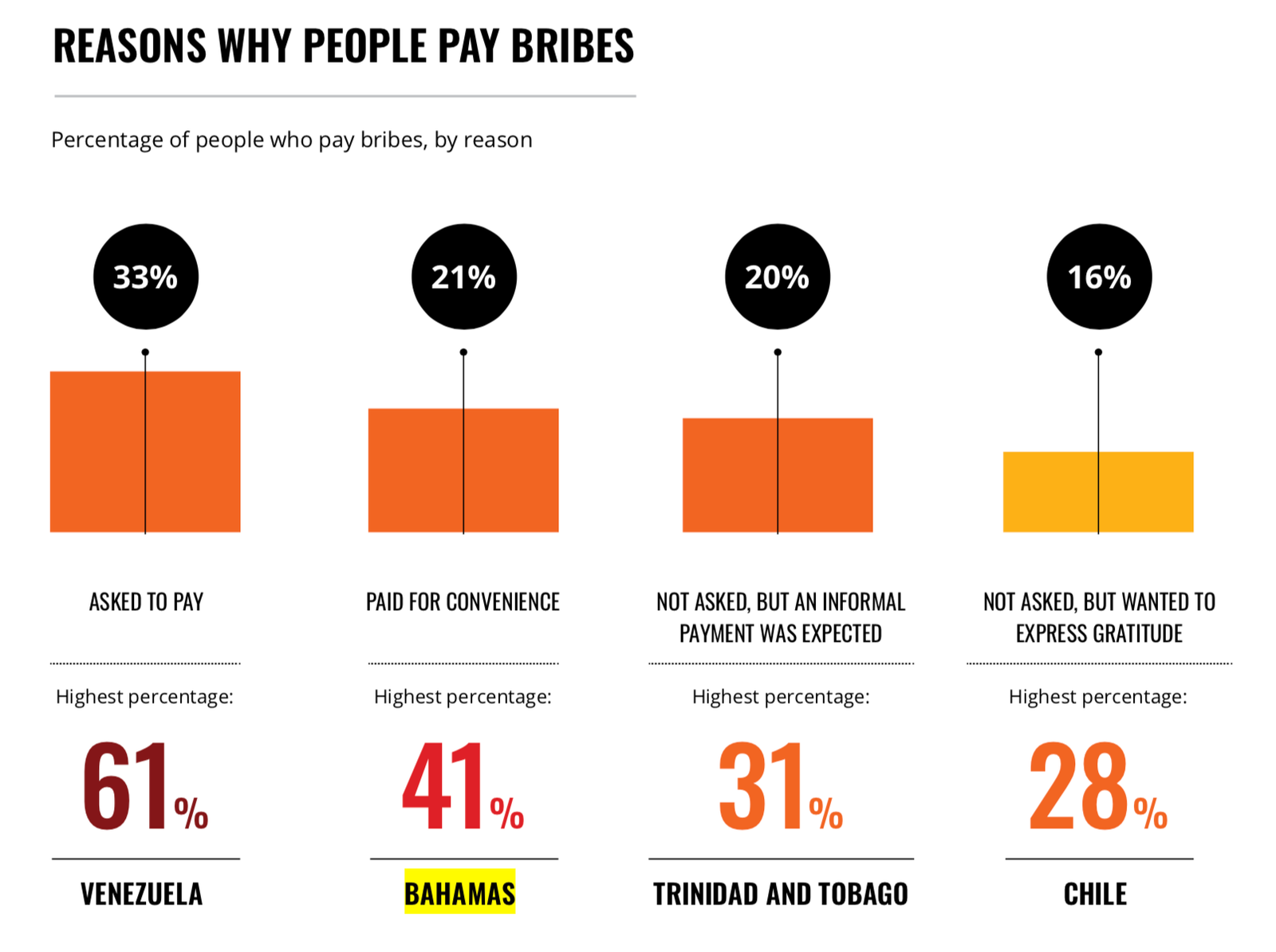Forty-five per cent think corruption has increased in the past twelve months.
NASSAU, BAHAMAS- A survey assessing citizens’ views and experiences of corruption in The Caribbean has revealed that 80 per cent of Bahamians think corruption in government is a ‘big problem’.
Transparency International’s Global Corruption Barometer Latin American & The Caribbean 2019also revealed that 45 per cent of respondents thought corruption has increased in the previous 12 months.
The Global Corruption Barometer presents the largest, most detailed set of public opinion data on citizens’ views on corruption and their direct experiences of bribery in Latin America and the Caribbean.
The Bahamas survey was conducted between January 31, 2019 and February 18, 2019, with 1,007 respondents.

Between January and March 2019, the Global Corruption Barometer (GCB) surveyed more than 17,000 citizens in 18 countries across the region. According to the report, the results show that more than half of all citizens think corruption is getting worse in their country and that their government is doing a bad job at tackling it.
“The GCB found more than one in five people who accessed public services, such as water and electricity, paid a bribe in the preceding year,” the report read.
“This equates to approximately 56 million citizens in the 18 countries surveyed. The GCB also reveals that corruption is hitting some of the most vulnerable people the hardest; women are more likely to pay bribes for health services and public school education,” the report stated.
The report was authored by Coralie Pring and Jon Vrushi, and for the first time has shed light on sexual extortion, or sextortion, one of the most significant forms of gendered corruption. Transparency International noted that corruption hinders economic growth and the delivery of public services.
“In some cases, corruption even deprives people of their human rights and dignity, like when citizens are coerced to provide sexual favours in exchange for public services, such as health and education – a practice known as sexual extortion or “sextortion”,” the report read.

“A lack of political integrity risks undermining democratic foundations in many Latin American and Caribbean countries. This can be seen in the abuse of electoral processes, such as vote-buying and the spread of fake news, and in the weakening of political institutions.”
The report stated: “A growing distrust and disappointment in government has contributed to increasing anti-corruption sentiment across the region, but this is empowering populist leaders who frequently make matters worse. Despite these challenges, people are overwhelmingly positive in their desire to make a difference in the fight against corruption. Ultimately, people have the right to report corruption, demand that politicians act with integrity, and seize opportunities to actively shape the decisions and processes which affect their lives, families and communities.”
Of the persons surveyed, 17 per cent said they had been offered bribes in exchange for votes.
According to the report, 85 per cent of Bahamians surveyed believe that ordinary citizens can make a difference in the fifth against corruption.
“Equally concerning,” the report continued, “the GCB also shows that one in five citizens experiences sexual extortion or knows someone who has experienced it. In some situations, women are more vulnerable to bribery, particularly in the health and education sectors. The findings highlight that more must be done to prevent sexual extortion and to recognize and address specific gendered forms of corruption.
“The results also show that greater political and electoral integrity is needed, especially in environments where vote buying, threats of retaliation and the spread of fake news are common occurrences around elections. “Despite negative experiences, citizens are largely optimistic about the future,” the report stated.






